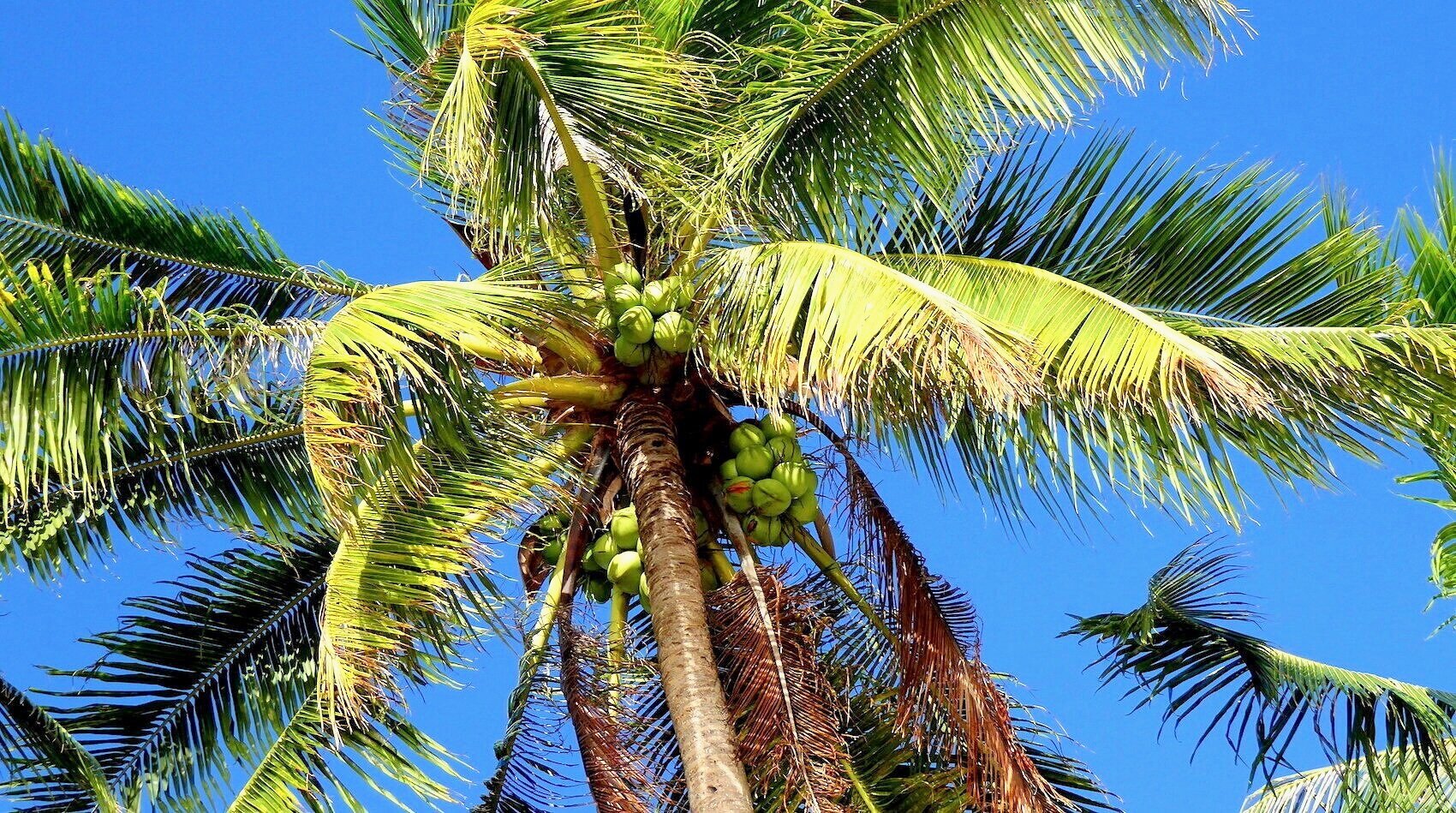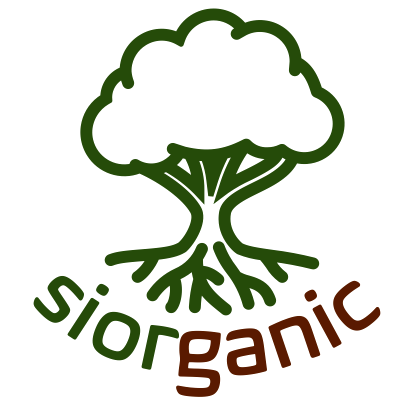Coconut is thought to originate in the Pacific and first cultivated on Southeast Asian islands. Considered native to the Philippines, it is a very easy to grow and hardy (palm) tree. And you can use all parts of it: the trunk for lumber, firewood, furniture; the leaves for roofing, rope, wrapping or storage materials; the younger coconuts (‘buko’) are full of tasty, sweet coconut water - one of the cleanest and healthiest things you can drink; the mature coconuts yield coconut milk and meat, and produce copra; and the dried shells are used as firewood and charcoal or handcrafted into ornaments. The zap from flower stands make ‘tuba’, a slightly alcoholic morning drink, that can be refined into a traditional Filipino distilled palm liquor called lambanóg. Coconut serves as a shade tree and often intercrops with cacao and coffee. The only downside is that falling nuts hit hard and can seriously injure or even kill (a friend of ours almost ended up with a tragic head injury, but luckily he is ok today). So don’t shelter underneath a coconut, especially when full of nuts.

Fresh green, young coconut juice - ‘buko’ juice - is like mother nature’s own fitness drink. Low in calories, no fat or cholesterol, high in potassium, pure, tasty, cleansing and hydrating. Very refreshing and healthy.
Coconut seedlings for planting on the Tugas Tree Farm.





